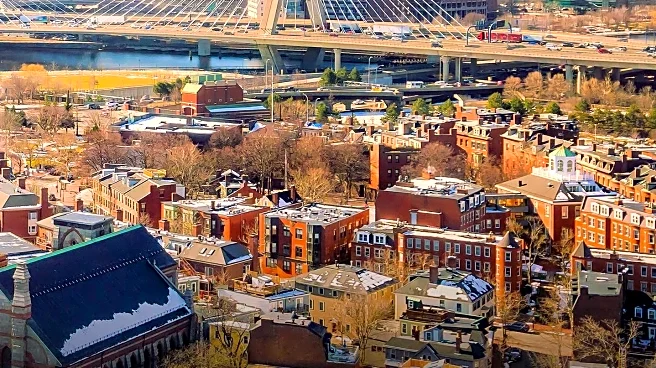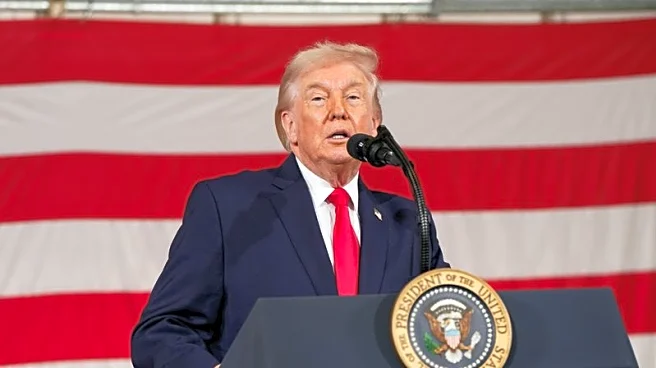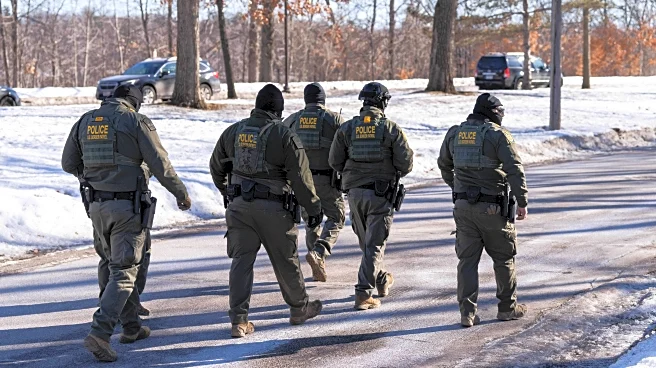What's Happening?
The AAR/SBL 2025 conference in Boston offers attendees the opportunity to explore the city's rich historical and cultural sites. Participants can visit the Freedom Trail, which includes landmarks like
the Old North Church and the Boston Tea Party Ships & Museum. The Black Heritage Trail provides insights into Boston's African American history, featuring sites such as the African Meeting House and the Malcolm X–Ella Collins House. Religious landmarks include the Mary Baker Eddy Library and the Cathedral of the Holy Cross. Attendees can also enjoy Boston's culinary scene, with options ranging from the Boston Sail Loft to Myers + Chang.
Why It's Important?
The AAR/SBL conference not only serves as a platform for academic and religious discourse but also promotes cultural tourism in Boston. By highlighting the city's historical and religious sites, the event fosters a deeper understanding of Boston's diverse heritage. This cultural engagement can enhance the conference experience, offering attendees a broader perspective on the intersection of religion, history, and society. Additionally, the influx of visitors can boost the local economy, benefiting businesses in the hospitality and tourism sectors.
What's Next?
As the conference progresses, attendees are likely to continue exploring Boston's landmarks, contributing to the city's cultural and economic vitality. The event may inspire future collaborations between academic institutions and local cultural organizations, promoting ongoing engagement with Boston's historical and religious heritage. The success of the conference could encourage similar events to incorporate cultural tourism into their agendas, enhancing the overall experience for participants.
Beyond the Headlines
The AAR/SBL conference underscores the importance of preserving and promoting cultural heritage in urban settings. By integrating historical and religious exploration into the event, organizers highlight the role of cultural landmarks in shaping community identity and fostering intercultural dialogue. This approach can serve as a model for other conferences, emphasizing the value of cultural engagement in academic and professional gatherings.











